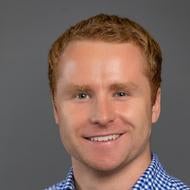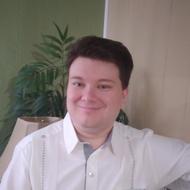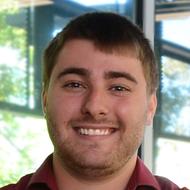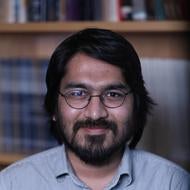CE-CERT Announces 2021-2022 Recipients of National Center for Sustainable Transportation Fellowship and Dissertation Awards
CE-CERT is honored to announce the 2021-2022 UCR’s awardees of National Center for Sustainable Transportation Fellowship and Dissertation awards. Five graduate students were awarded $20,000 each, to support their education and research in sustainable transportation.
The National Center for Sustainable Transportation (NCST) provides national leadership in advancing environmentally sustainable transportation through cutting-edge research, direct policy engagement, and education of our future leaders. NCST is one of seven national centers funded by the U.S. Department of Transportation’s University Transportation Centers (UTC) Program, and the only national center focused on the Fixing America’s Surface Transportation (FAST) Act research priority area of Preserving the Environment. The Institute of Transportation Studies at the University of California, Davis (ITS-Davis) leads the NCST in partnership with the University of California, Riverside, the University of Southern California, California State University, Long Beach, Georgia Institute of Technology; and the University of Vermont.
Ryan Drover, Chemical & Environmental Engineering
NCST Fellowship Award
Ryan currently works in the field of marine emissions, where he is developing a database of all of UCR’s marine emissions studies for work with the EPA with the aim to create a new, stand-alone marine emissions model. He also works on collaborative health exposure studies in partnership with the UCR School of Medicine and the multidisciplinary BREATHE Center.
Under the NCST Fellowship, Ryan will further expand on the database of marine emissions data he developed to contribute to the advancement of marine emissions modelling. This work will consist of developing engine load-specific emission factors (EFs) and the comparison between mode-specific and engine load-specific EFs for gaseous and particulate pollutants. This will support a comprehensive analysis of marine emissions to atmospheric pollution in coastal and inland communities.
This work will be conducted through on-ship emissions measurements that will add contemporary data to the database and will rectify gaps in direct emissions and ambient coastal and inland pollutant measurements. Accounting for the evolution of engine technology, marine oil and fuel composition changes, and control methods over time in marine activity. Ryan plans to leverage this work into a California state policy fellowship to apply the findings of this work to sustainable transportation policy in marine as well as other off- and on-road emissions.
Luis Fernando Enriquez-Contreras, Electrical and Computer Engineering
NCST Fellowship Award
Luis is developing an integrated platform for electric vehicle chargers in a microgrid using a universal software and interface.
As part of this research, he is focused on developing a free and open-source Python library for integrating various microgrid components and electric vehicle charging infrastructure. This library is meant to facilitate and optimize the data acquisition and control of the various components of a microgrid and EV chargers. The major advantage of this library is that it will be component agnostic, which allows the users to configure all the components in one library and easily add and swap components regardless of manufacturer.
Chas Fredrickson, Mechanical Engineering
NCST Fellowship Award
Currently, Chas is evaluating Battery Electric Vehicles targeted at of Goods Movement and Port Operations. He is studying the operational patterns of various equipment and marine vessels such as cargo transfer equipment, and harbor craft vessels. His goal is to expand his current research to incorporate ocean-going vessels to broaden his testing experiences.
Chas plans to investigate and evaluate the activity patterns and energy use of BEV in in goods movement logistics and scenarios. The electrification of the goods movement sector is a possible solution to the reduction of use of fossil fuels, greenhouse gases, and pollutant emissions. Over the course of the data logging period, Chas will characterize a broad range of BEVs across several port locations throughout California. This information will allow the effectiveness of the BEVs to be evaluated for different applications.
Jacqueline Garrido, Electrical and Computer Engineering
NCST Fellowship Award
Jacqueline’s current research focuses on studying EV charging behaviors to minimize carbon emissions.
Her project aims to develop new EV charging strategies that are focused on minimizing carbon emissions, while addressing other performance metrics. As a critical component, this project will consist of an extensive study to understand and model activity and charging patterns of light-duty (LD), medium-duty (MD), and heavy-duty (HD) electric vehicles. With the current target of 100% zero emission vehicles by 2035 in California, this project will address smart and innovative solutions not only to charge these vehicles, but to also optimize vehicle schedules and routes, with the goal of minimizing CO2 emissions.
Jubair Yusuf, Electrical and Computer Engineering
NCST Dissertation Award
Jubair’s research will focus on electric vehicle integration into smart grids. This research includes areas such centralized optimization approach for integrated distributed energy resources with vehicle to grid (V2G) operation; smart charging and discharging strategies for heavy-duty and light-duty electric vehicles (PEV); data-driven PEV load modeling for a public PEV charging station; and analyzing the grid impacts of PEV integration.
Let us help you with your search




